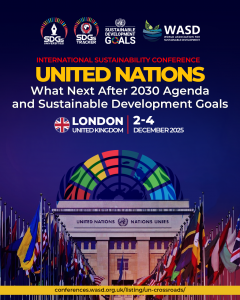Beyond 2030: Forging New Pathways for Global Sustainability, Dr Connie Mitchell, Dr Israa Fardous
 Dr Connie Mitchell
Dr Connie Mitchell
Director, Teaching and Learning Center
Director, Writing and Tutoring Center
Prince Sultan University
Riyadh
Saudi Arabia
Dr Israa Fardous
Faculty Member
Interior Design Department
Prince Sultan University
Riyadh
Saudi Arabia
Abstract: As the 2030 deadline for the UN Sustainable Develop Goals (SDGs) nears, global progress remains uneven, with persistent challenges like climate change, inequality, and technological divides. This paper argues that the post-2030 agenda must evolve beyond extending the current goals. It proposes a more flexible, inclusive, and participatory framework, informed by insights from the Voluntary National Reviews, Higher Education, and cross-sector partnerships. Three priorities are emphasized: adapting sustainability indicators to local contexts and indigenous knowledge, strengthening collaboration among governments, academia, businesses, and civil society, and embedding resilience and ethical responsibility in technology use. The paper advocates shifting from rigid targets to adaptable pathways that respond to global challenges while upholding justice and dignity. Ultimately, it calls for a new “contract of responsibility” that links global aspirations with local action, ensuring that sustainable development beyond 2030 is both transformative and grounding in community engagement.
Keywords: Sustainable Development Goals (SDGs); Post-2030 Agenda; Voluntary National Reviews (VNRs); Indicators; Resilience; Adaptive Pathways; Collaboration; Ethics.

